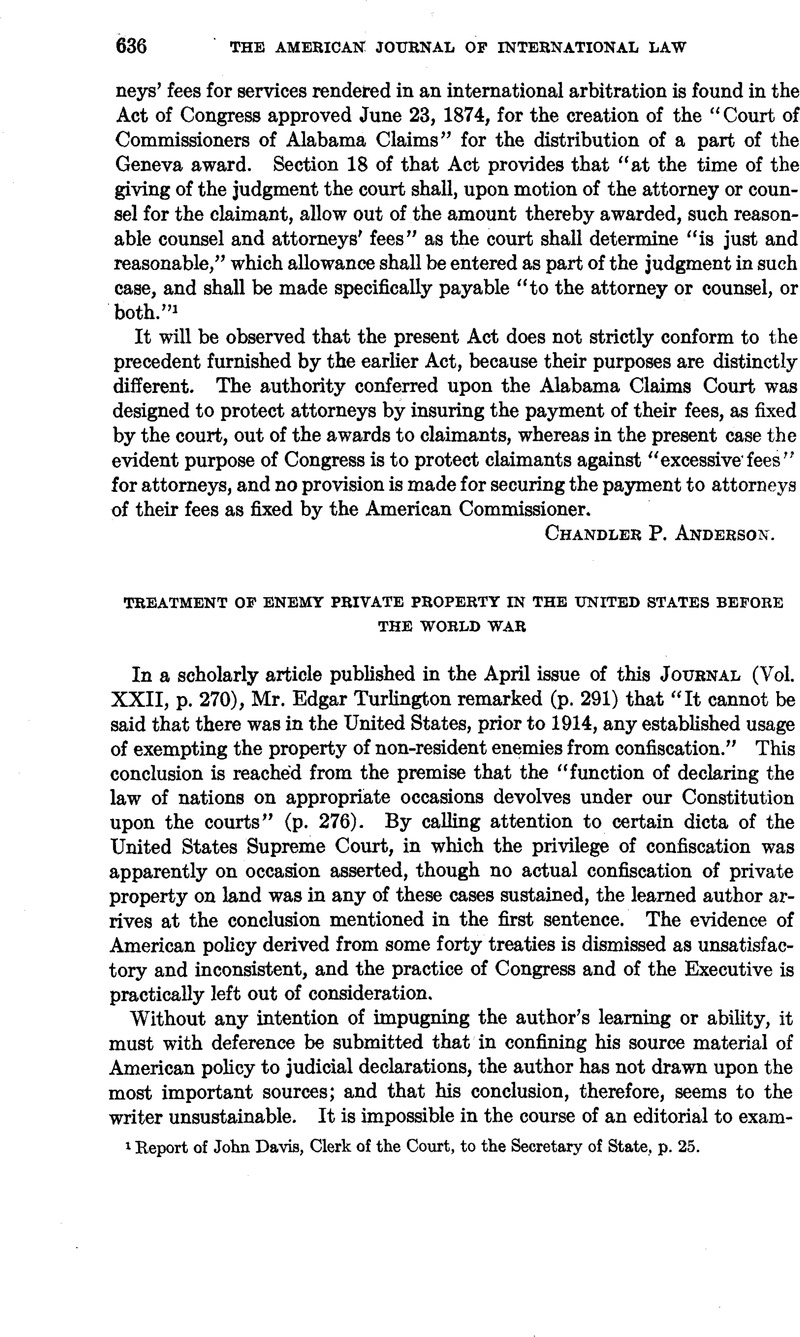No CrossRef data available.
Published online by Cambridge University Press: 04 May 2017

1 23 Statutes at Large 22; United States v. Arjona (1886), 120 U. S. 479.
2 Wright, The Enforcement of International Law Through Municipal Law in the United States, (Urbana, 1916), p. 221.
3 (1813) 8 Cranch, 110.
4 The Act of August 6,1861,12 Stat. 319, was passed to confiscate property which was used or intended to be used “ in aid of the rebellion ” ; the Act of July 17,1862 (12 Stat. 589), was passed “ to suppress insurrection, to punish treason and rebellion, to seize and confiscate the property of rebels and for other purposes.” These Acts are discussed in 7 Moore's Digest of International Law, 290-295. See the comment on Miller v. U. S. (1870), 11 Wallace, 268, in 23 Columbia Law Rev. 383; and Hyde, International Law, II, 238: “ It is not believed that [the Act of 1862] . . . indicates legislative approval of tihe confiscation in a foreign war of the property of alien enemies within the national domain.” The sole act of confiscation of enemy property in general in American history is probably the Confederate Act of 1861, which excepted from its provisions “ public stock and securities.” Of this Act, Earl Russellsaid: “ Whatever may have been the abstract rule of the Law of Nations in former times, the instances of its application in the manner contemplated in the Act of the Confederate Congress in modern and more civilized times are so rare and have been so generally condemned that it may almost be said to have become obsolete.” See Hall, International Law, 7th ed., page 462 note.
5 Works of Hamilton, Alexander . Lodge's edition (Vol. V, p. el seq.). See the extended quotations from Hamilton and the references to the treaties concluded by the United States in Moore, International Law and Some Current Illusions (1924), p. 14 et seq Google Scholar.
6 “ Nor can a reason be perceived for maintaining that the public faith is more entirely pledged for the security of property trusted in the territory of the nation in time of peace, if it be accompanied by its owner, than if it be confided to the care of others.” (8 Cranch, 124.)
7 See Bassett, John Moore's citation of St. Paul's proverb “ the letter killeth but the spirit giveth life,” and the illuminating discussion of this very question in his International Law and Some Current Illusions, pages 20, 21 Google Scholar.
8 7 Moore's Digest, pp. 312, 313.
9 (1833) 7 Peters, 51.
10 See U. S. v. Klein, 13 Wallace, 128,137, in which Chase, C. J., declared: “ The Government recognized to the fullest extent the humane maxims of the modem law of nations which exempt private property of non-combatant enemies from capture as booty of war.”
11 7 Moore's Digest, 306.